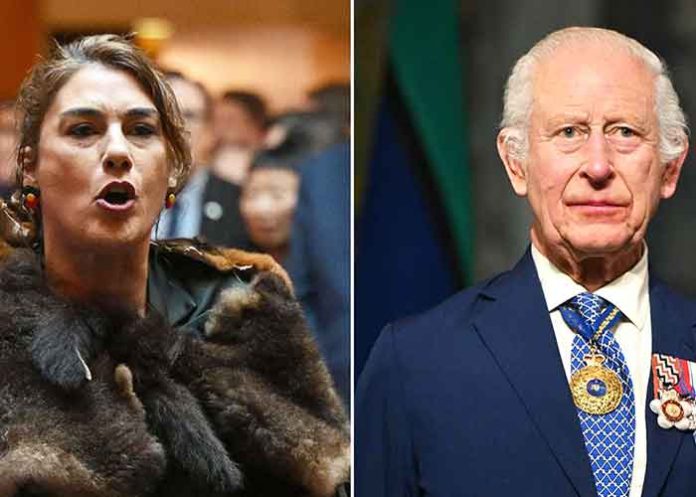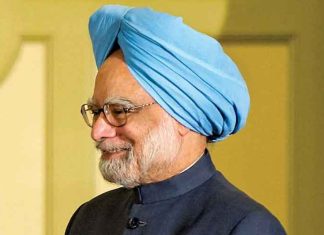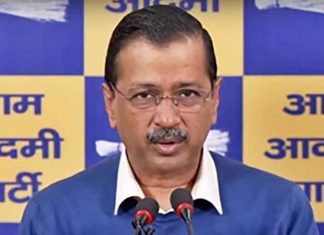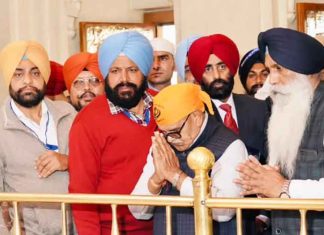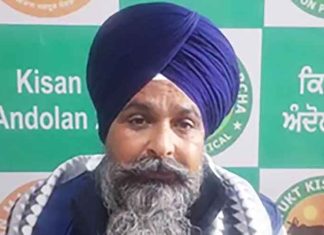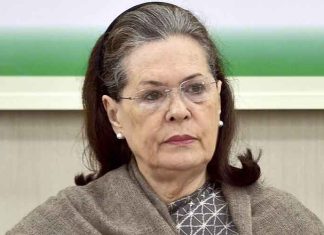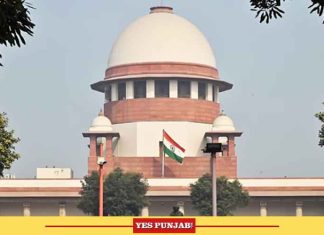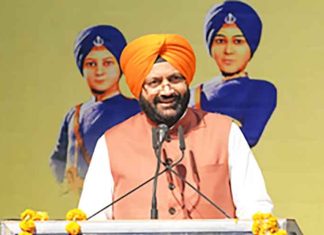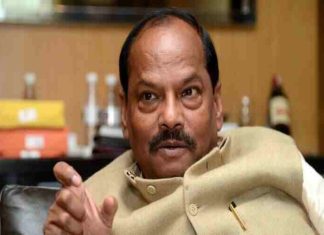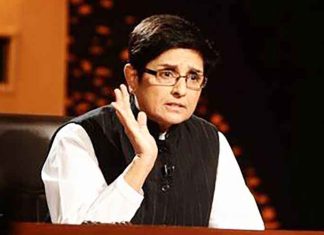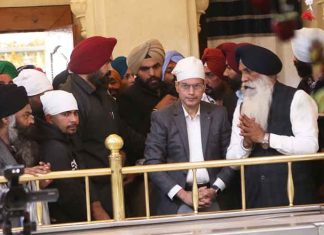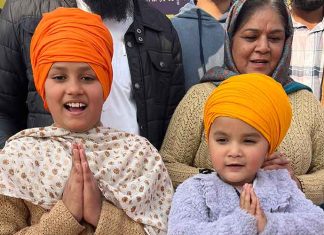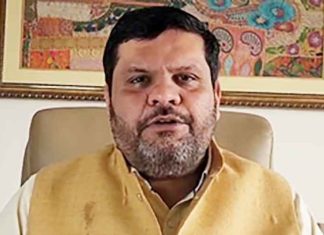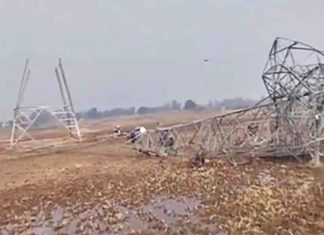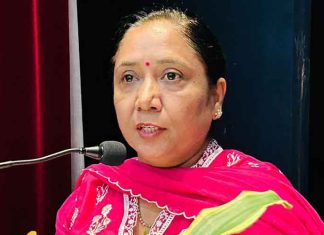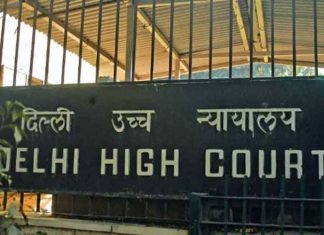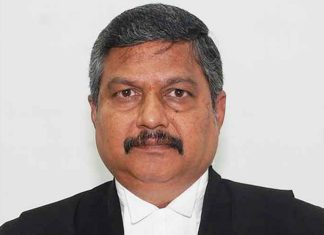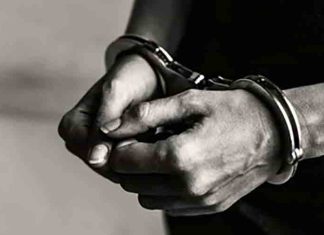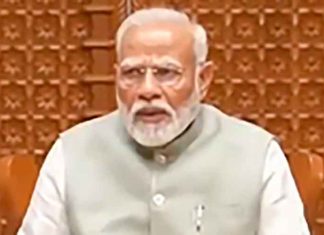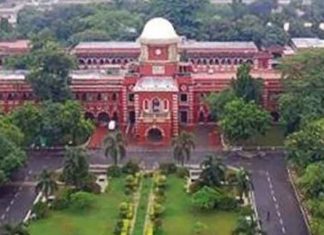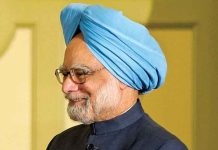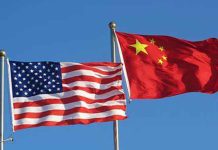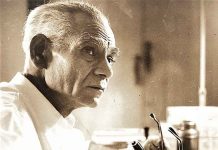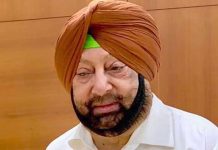Canberra, October 22, 2024 (Yes Punjab News)
During King Charles’ first official visit to Australia as monarch, a dramatic confrontation unfolded in the nation’s capital of Canberra when Australian senator Lidia Thorpe publicly berated the King, accusing him of committing genocide against Indigenous Australians.
Thorpe’s outburst, which occurred at the end of a landmark speech given by King Charles at Australia’s Parliament House, has garnered both praise and condemnation from various quarters, reigniting debates on colonial history, Indigenous rights, and Australia’s relationship with the British monarchy.
Lidia Thorpe’s Protest: “You Are Not My King”
Lidia Thorpe, an independent senator and an outspoken advocate for Aboriginal rights, interrupted the royal reception, shouting, “You are not my King… You committed genocide against our people. Give us our land back.” She went on to accuse the Crown of stealing Aboriginal lands and destroying Indigenous culture, making calls for the return of land and the establishment of a treaty between the Australian government and its First Nations people.
As security personnel moved to escort her from the venue, Thorpe continued to demand reparations for historical wrongs, asserting that King Charles was not the legitimate sovereign of Australia. “This is not your land,” she proclaimed, echoing her long-held position that the British monarchy has no rightful claim to Australian lands. The protest was a bold statement against centuries of colonization and the enduring impacts of British rule on Indigenous populations.
Lidia Thorpe’s Political Background
Born in 1973 in Victoria, Thorpe belongs to the Gunnai, Gunditjmara, and Djab Wurrung peoples, and her political career has been deeply rooted in activism for Indigenous rights. Thorpe made history in 2020 as the first Aboriginal woman to represent Victoria in the Australian Senate, originally as a member of the Greens. However, she later left the party in 2023 due to disagreements over the Indigenous Voice to Parliament referendum, a reform she and her supporters opposed.
Thorpe has long advocated for a treaty to address the historical injustices faced by Aboriginal Australians, including land dispossession, systemic discrimination, and cultural destruction. Her activism has often taken a confrontational approach, using public platforms to call attention to Indigenous issues. For her, any move towards an Australian republic must be accompanied by a treaty to ensure that the sovereignty of First Nations people is acknowledged and respected.
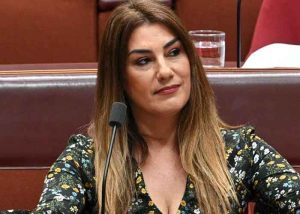
Thorpe’s Stand Against the Monarchy
Thorpe’s protest at the royal reception was not an isolated incident but part of her larger criticism of the British monarchy’s role in Australia’s colonial history. She has repeatedly argued that the Crown’s legacy in Australia is one of exploitation, theft, and violence against Aboriginal people.
In interviews following the protest, Thorpe reiterated her belief that King Charles is not the legitimate ruler of Australia. She told the BBC that sovereignty belongs to those who are “of the land,” not to an external monarch who has inherited power through a colonial system. “How can he stand up there and say he’s the King of our country?” she asked. “He’s stolen so much wealth from our people and from our land. He needs to give that back.”
Thorpe also demanded an official apology from King Charles for the atrocities committed by British colonizers, including the massacres of Indigenous Australians. She insists that without acknowledgment and reparation, the country cannot move forward in its journey of reconciliation.
A Divided Response: Praise and Criticism
Thorpe’s protest has sparked intense reactions across Australia, with some praising her courage in standing up to the monarchy, while others condemned her actions as inappropriate and divisive.
Aboriginal elder Aunty Violet Sheridan, who had formally welcomed King Charles and Queen Camilla to Ngunnawal country earlier in the day, expressed disappointment with Thorpe’s protest, stating that she did not speak for all First Nations people. “Lidia Thorpe does not speak for me and my people,” Sheridan told The Guardian Australia.
Similarly, Nova Peris, the first Aboriginal woman to serve in the Australian Senate, criticized Thorpe’s actions, calling them “embarrassing” and detrimental to the ongoing process of reconciliation. Peris emphasized the need for respectful dialogue and mutual understanding to address historical wrongs, rather than confrontational protests.
However, Thorpe’s stand was lauded by other activists, such as Bundjalung lawyer Vanessa Turnbull-Roberts, who argued that the real disrespect lay in inviting the monarchy to tour Australia in the first place. She praised Thorpe for channeling the voices of Indigenous ancestors and continuing the fight for justice. “When Thorpe speaks, she’s got the ancestors right with her,” Turnbull-Roberts said.
A Controversial Image Fuels Backlash
Adding to the controversy, a violent cartoon briefly appeared on Lidia Thorpe’s social media account shortly after the protest. The image depicted King Charles beheaded beside his crown, drawing widespread condemnation.
Thorpe quickly deleted the post, explaining that it had been shared by a staff member without her knowledge. She issued a statement distancing herself from the image, asserting that she does not condone violence. “I would not intentionally share anything that could be seen to encourage violence against anyone,” she said.
Despite this clarification, the incident has intensified scrutiny of Thorpe’s actions, with Australian politicians, including Prime Minister Anthony Albanese, weighing in. Albanese criticized Thorpe for not meeting the standards of behavior expected from parliamentarians, while opposition leader Peter Dutton called for her resignation.
The Broader Context: Calls for a Republic and Indigenous Rights
Thorpe’s protest comes at a time when Australia is grappling with its colonial legacy and its future relationship with the British monarchy. Prime Minister Anthony Albanese has long supported the idea of Australia becoming a republic, though plans for a referendum have been delayed following the rejection of a proposal to give Indigenous Australians greater political rights in a separate referendum held in 2023.
For many Australians, Thorpe’s protest highlights the unresolved tensions between Indigenous people and the state. While there is growing support for recognizing the rights of First Nations people, the path to reconciliation remains fraught with challenges. Thorpe’s call for a treaty between Aboriginal and non-Aboriginal Australians aligns with a broader movement seeking to address the “unfinished business” of colonization and land rights.
King Charles’ Reaction: Unruffled by the Protest
Despite the uproar, it appears King Charles remained calm and unbothered by the protest. Reports suggest that the King viewed the event as a successful day, focusing instead on the positive interactions he had with well-wishers earlier in the day at the National War Memorial, which included greeting an alpaca.
UK Prime Minister Sir Keir Starmer defended King Charles, stating that the monarch was doing an “incredible job” as a global ambassador for the Commonwealth, while continuing to fulfill his duties with public service at the forefront.
Thorpe’s confrontation re-ignites debates
Lidia Thorpe’s confrontation with King Charles has reignited debates about Australia’s colonial past, the role of the monarchy, and the future of Indigenous rights in the country. Her protest has drawn both admiration and criticism, highlighting the complex dynamics of reconciliation and the deep scars left by colonization.
As Australia moves forward, the need for dialogue, recognition, and potentially a treaty between its government and First Nations people will remain at the center of the nation’s political discourse.
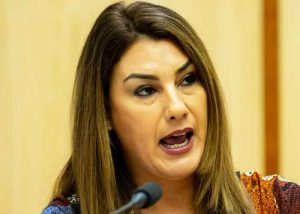
FAQs
1. Who is Lidia Thorpe?
Lidia Thorpe is an independent Australian senator and an advocate for Indigenous rights. She belongs to the Gunnai, Gunditjmara, and Djab Wurrung peoples and has been involved in activism for many years.
2. What did Lidia Thorpe say to King Charles?
Thorpe interrupted King Charles’ parliamentary speech in Canberra, accusing him of committing genocide against Indigenous Australians. She demanded that the Crown return Aboriginal lands and called for a treaty between First Nations people and the Australian government.
3. How has Lidia Thorpe’s protest been received?
Thorpe’s protest has received mixed reactions. Some Indigenous activists have praised her stand as courageous, while others, including prominent Aboriginal figures, have criticized her actions as disrespectful and divisive.
4. What are Lidia Thorpe’s views on the British monarchy?
Thorpe has long been critical of the British monarchy, stating that it is not the legitimate sovereign of Australia. She advocates for a treaty to address the historical injustices inflicted on Indigenous Australians by British colonization.
5. How did King Charles react to the protest?
King Charles remained calm and reportedly did not allow the protest to overshadow his visit. He continued his engagements in Canberra, meeting with the public and maintaining focus on his duties.




